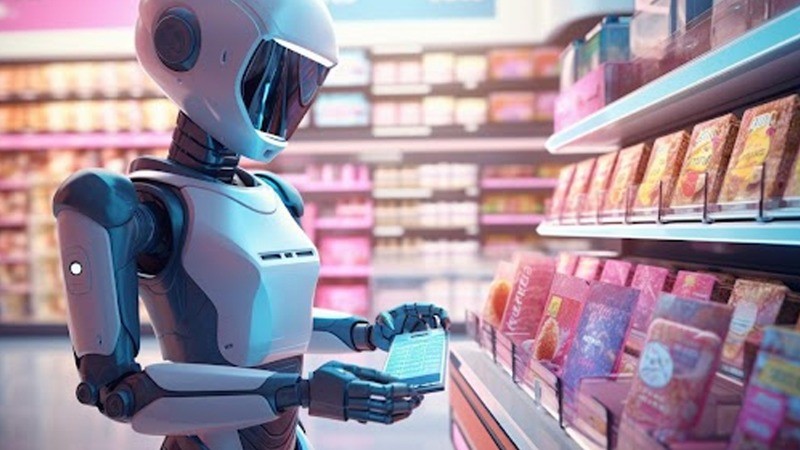
The Digital Transformation of FMCG: The Fast-Moving Consumer Goods (FMCG) sector has been rapidly evolving in recent years. The rise of digital marketing and technological innovation has created new opportunities for companies to enhance their operations, better engage with consumers, and streamline processes. Central to this transformation is the integration of Marketing Technology (MarTech) and Artificial Intelligence (AI), which allows FMCG companies to operate more efficiently and effectively. This article explores how MarTech and AI are reshaping the FMCG industry, focusing on personalized marketing, supply chain optimization, and improved customer experiences.
"AI and MarTech have completely transformed how FMCG companies approach consumer engagement. It’s no longer about just reaching your audience, but about reaching them in the right place at the right time with tailored messaging," says Ashutosh Bhatt, a marketing expert with over a decade of experience working with top IT and FMCG brands.
Personalization at Scale: A New Era of Marketing
The modern consumer expects personalized experiences from brands, and AI-powered MarTech solutions allow FMCG companies to meet these expectations. By leveraging vast amounts of data, AI algorithms can segment consumers based on their purchasing history, preferences, and browsing behavior. This allows marketers to create highly targeted campaigns that resonate with individual consumers.
For instance, AI-driven platforms analyze consumer data in real-time to predict future behaviors. This means that brands can send personalized offers to consumers at the most opportune moments, whether it’s a reminder about a previously abandoned cart or a discount on a frequently purchased item.
"Personalization used to be a luxury reserved for digital-first companies, but today, even traditional FMCG brands are using AI to tailor their marketing strategies," explains Ashutosh Bhatt, who has worked with major FMCG brands to implement AI-driven marketing campaigns.
AI in FMCG: Case Studies
Enhancing Customer Experience with AI
In addition to personalizing marketing efforts, AI also enhances the overall customer experience. Chatbots, for instance, are widely used in the FMCG industry to provide 24/7 customer support. These AI-powered bots can handle a wide range of inquiries, from tracking orders to providing product recommendations, without the need for human intervention.
"Brands today need to be accessible around the clock, and AI makes that possible," Ashutosh says. "With AI-powered customer service tools, FMCG companies can maintain a high level of customer satisfaction while reducing operational costs."
Optimizing Supply Chains with AI
AI is not only revolutionizing the marketing side of FMCG but also playing a crucial role in supply chain management. One of the biggest challenges in the FMCG sector is accurately forecasting demand to avoid overproduction or stockouts. AI algorithms can analyze historical sales data, seasonal trends, and even weather patterns to predict future demand more accurately.
"What used to take weeks to analyze and optimize can now be done in real-time," Ashutosh Bhatt notes. "AI-driven supply chain management tools allow companies to stay ahead of demand, reduce waste, and improve operational efficiency."
Several FMCG giants have successfully implemented AI in their supply chains. For example:
The Future of MarTech and AI in FMCG
The use of MarTech and AI in the FMCG industry is expected to continue growing as technology evolves. Companies that adopt these technologies early are likely to gain a significant competitive advantage. In the future, we can expect to see even more advanced AI applications, such as real-time personalized video ads and AI-generated content tailored to individual consumers.
A Win-Win for Brands and Consumers
The integration of MarTech and AI is driving significant changes in the FMCG industry, enabling companies to better engage with consumers, optimize their operations, and enhance customer experiences. As these technologies continue to evolve, FMCG companies that embrace them will be better positioned to thrive in an increasingly competitive market.